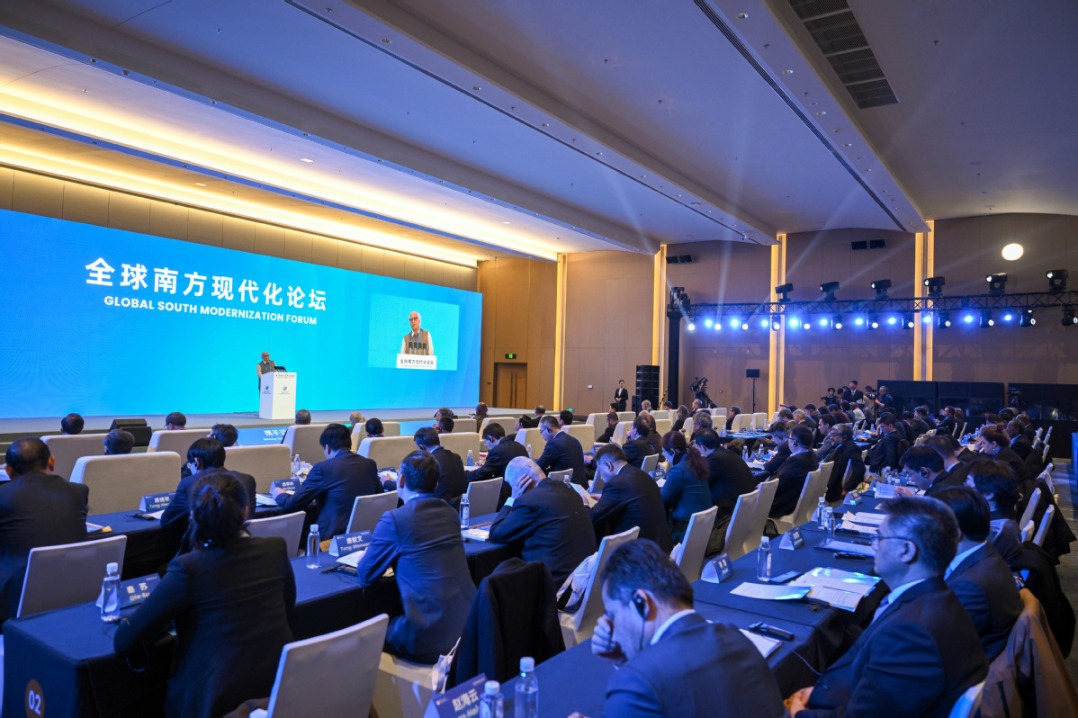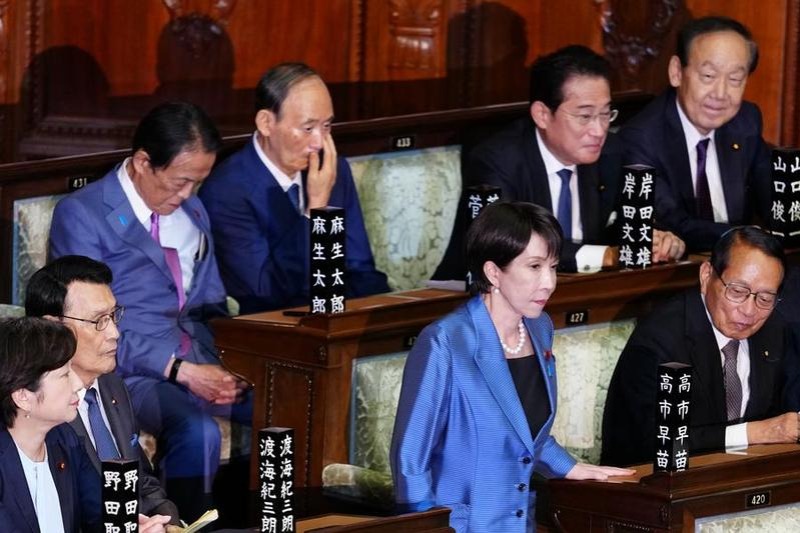Fruits of labor
The RCEP is a major cooperation achievement of Asian economies that should be actively treasured


In June last year, with the official entry into force of the Regional Comprehensive Economic Partnership for the Philippines, the world's largest free trade zone entered a new stage of full implementation. The RCEP creates a huge market with strong diversity and inclusiveness. The implementation of the RCEP has played an important role in promoting regional economic and trade cooperation, improving the policy environment, strengthening the resilience of the production and supply chains, enhancing connectivity, bolstering cooperation in the digital economy, and supporting the development of small and medium-sized enterprises. Significant early harvests have already been achieved in implementing the RCEP. The positive effect on ASEAN-China cooperation is a vivid example in this regard.
The RCEP was initiated by the 10 member states of the Association of Southeast Asian Nations. China was the first country to ratify the agreement. With complementary economic structures and interconnected production and supply chains, ASEAN and China have a huge market demand for each other's goods. In 2022, the total trade volume between ASEAN and China reached 6.52 trillion yuan ($901.9 billion), accounting for 15.5 percent of China's foreign trade. The total import and export value of China with ASEAN accounted for 50.3 percent of China's total trade value to other RCEP member countries in 2022. In 2023, ASEAN-China bilateral trade reached 6.41 trillion yuan. ASEAN and China, for four years in a row, have remained each other's largest trading partners. As each other's major source of investment and important market, the industry chains and supply chains of ASEAN and China are deeply interconnected, and the connectivity is constantly being enhanced.
In today's world, regional economic cooperation is becoming increasingly important and prominent in the global economy. The full and high-quality implementation of the RCEP shows that regional countries are committed to strengthening economic integration and promoting more open regional economies. ASEAN and China, as well as other economies in the region, should join hands to further unleash the potential of the RCEP, so as to inject more impetus into regional economic growth and help bolster global stability.
First, by seeking common development via win-win cooperation, ASEAN and China, through the sound and steady growth of their comprehensive strategic partnership, can contribute more to promoting the development of the RCEP and regional economic integration. To further boost ASEAN-China cooperation is of great significance to regional economic integration, stability and development. Meanwhile, the implementation of the RCEP has also injected stronger momentum into ASEAN-China cooperation. The two sides should fully seize the opportunity brought about by the RCEP to expand the benefit of economic and trade cooperation through pursuing higher-level opening-up, leveraging the Cumulative Rules of Origin and other innovative policies to integrate the industry and supply chains effectively. A more efficient industrial structure can be forged based on the complementary advantages in the industries of both ASEAN and China. Meanwhile, new energy, the digital economy, cross-border e-commerce and other emerging industries have created new growth points for cooperation. ASEAN and China should continue to work on fostering new types of industries and contribute to promoting the transformation and upgrading of traditional industries in the region.
Second, it is important to further unleash the dividends of the full and high-quality implementation of the RCEP, so as to give stronger impetus to the recovery of both the regional and global economy, as well as sustainable development. With mounting uncertainties in the world, the geopolitical and economic landscape has become increasingly complex. The global economic recovery remains sluggish. Unilateralism, protectionism and de-globalization are on the rise. Against the backdrop of declining global openness, rising trade costs and supply chain bottlenecks, the RCEP can promote the free flow of production factors on a wider scope, realize the optimal allocation of production factors, promote the specialized division of labor, and spur more new quality productive forces and innovations, which will make the regional cooperation advance toward a more inclusive, modern, comprehensive and mutually beneficial direction.
Third, the solid social foundation and strong public support create favorable conditions for forging consensus on cooperation among regional countries to promote the full and effective implementation of the RCEP. The rapid and sustained growth of ASEAN-China relations would not have been achieved without mutual understanding and trust, nor could it have been achieved without collective wisdom and vision, the same goes for RCEP cooperation. The year 2024 has been designated by ASEAN and Chinese leaders as the ASEAN-China Year of People-to-People Exchanges. This opportunity should be made full use of to further cement the friendship between the peoples of both sides.
While witnessing the sound momentum of RCEP cooperation, the risks and challenges should not be ignored. Against the backdrop of the current challenging international and regional political and economic situation, RCEP countries have a more urgent need for increasing regional cooperation. Strengthening mutually beneficial cooperation is the only way to tap into the potential of regional economic growth and deal with challenges. To help ensure the sound and sustained development of RCEP cooperation, more attention should be paid to the following aspects.
First, enterprises should be aware of the real benefits that can be reaped by seizing the opportunity to fully utilize the RCEP rules and mechanisms. By taking advantage of the favorable condition created by the rules and the institutional innovations in regional openness, enterprises can improve their competitiveness with high-quality products and services, and contribute more to economic growth in the region.
Second, the RCEP signatories should treasure this cooperation outcome and actively implement the agreement. Relevant government agencies need to transform the RCEP rules and regulations into operable measures to promote the implementation of the agreement. Government authorities should improve the business environment to facilitate trade and investment, create public service platforms for the implementation of the RCEP, promote the construction of industrial cooperation zones, and strengthen cooperation in the areas of connectivity, intellectual property rights protection, commodity inspection and quarantine, and customs. ASEAN plays a leading role in RECP cooperation and can take the lead in improving the relevant working mechanism of the RCEP as soon as possible. Greater efforts should be made for capacity building as well as personnel training and exchanges.
Last but not least, the RCEP signatories should stay vigilant against the impact of geopolitical factors on the implementation of the RCEP, and the attempts at "decoupling" and the building of "small yards with high fences".ASEAN and China should work together to create an open cooperation platform to safeguard the open global economy, and build a fair, equitable and transparent system of international trade and investment.

The author is secretary-general of the ASEAN-China Center. The author contributed this article to China Watch, a think tank powered by China Daily.
The views do not necessarily reflect those of China Daily.
Contact the editor at editor@chinawatch.cn.


































